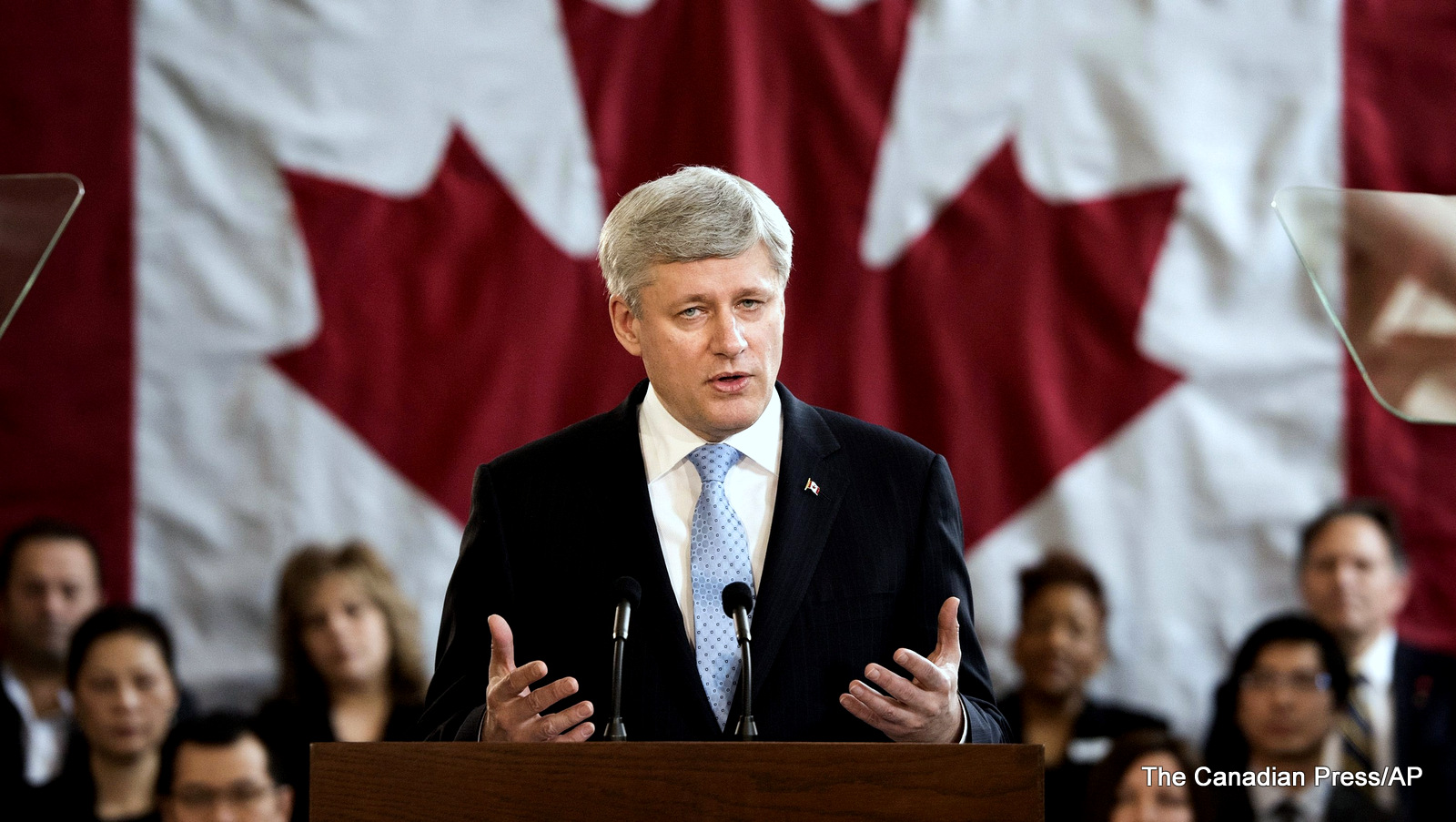 Prime Minister Stephen Harper speaks during a press conference in Toronto on Wednesday, March 4, 2015.
Prime Minister Stephen Harper speaks during a press conference in Toronto on Wednesday, March 4, 2015.
TORONTO — Canada is expanding its military mission against the Islamic State group to include airstrikes on targets in Syria, Prime Minister Stephen Harper announced Tuesday.
Harper told Parliament that he will not seek “the express consent” of the President Bashar Assad government for the airstrikes, but will work closely with allies who have been carrying out such airstrikes against IS over Syria in recent months.
Canada will be the first NATO country, other than the United States, to conduct airstrikes in Syria. Bahrain, Saudi Arabia, Jordan and the United Arab Emirates have also done so.
Canadian airstrikes have been limited to IS targets in Iraq thus far. Canada also has 69 special forces soldiers training Kurdish peshmerga fighters in northern Iraq. The IS group controls a wide swath of territory straddling the Syrian and Iraqi border.
“The government recognizes that ISIL’s power base, indeed the so-called caliphate’s capital, is in Syria,” Harper said, using an alternate acronym for the militants. “ISIL’s fighters and much of its heavier equipment are moving freely across the Iraqi border into Syria, in part for better protection against our airstrikes. In our view, ISIL must cease to have any safe haven in Syria.”
Harper also announced a one-year extension of the mission, which is now set to expire on March 30, 2016.
Although the Canadian mission doesn’t need parliamentary approval, the government is submitting it to a vote to show consensus. The motion is assured of passage because Harper’s Conservative Party has a parliamentary majority, though the Opposition New Democrat Party and the opposition Liberal Party both said they would not support it.
The proposed extension lasts beyond the Canadian federal election in October.
The Canadian special forces soldiers were sent to northern Iraq last September on a mission that was billed as noncombat with the troops supposed to be working far behind the front lines.
But the Canadians have been helping the Kurdish forces by directing coalition airstrikes against Islamic State fighters, a role generally considered risky because it means they are close to the battle.
The Canadians’ efforts complement those of the United States, which has conducted the vast majority of the airstrikes. But in their role of targeting airstrikes, the Canadians special forces soldiers are performing a task that so far the U.S. military has been unwilling to do. Gen. Martin Dempsey, chairman of the U.S. Joint Chiefs of Staff, has repeatedly said the U.S. would consider directing attacks from the ground but that it has not yet done so.
As a result, the military mission is somewhat controversial in Canada.
The government notes in the motion that it will continue “not to deploy troops in a ground combat role” despite the fact that soldiers are near the front lines and have been involved in at least two firefights. The military has said the soldiers acted in self-defense in those cases.
A Canadian soldier was also killed by Kurdish fighters in a friendly-fire incident this month.
The Canadian mission also includes six CF-18 fighter jets, a refueling tanker aircraft, two surveillance planes and one airlift aircraft, with about 600 airmen and airwomen based in Kuwait.

